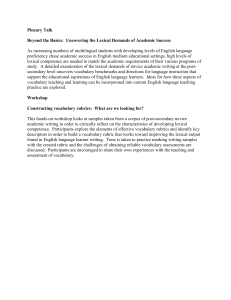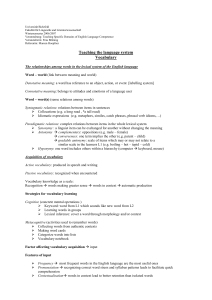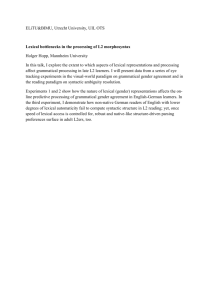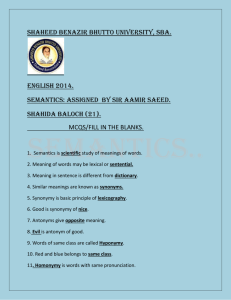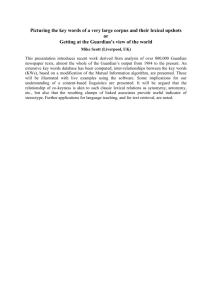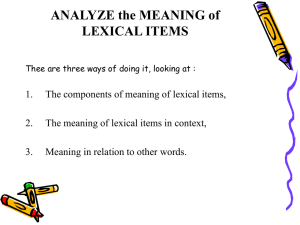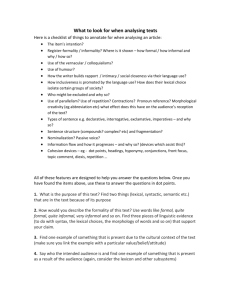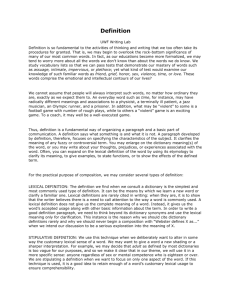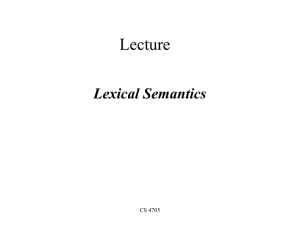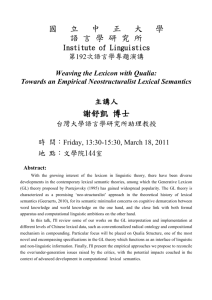Teaching Vocabulary to advanced students: a lexical approach. The
advertisement
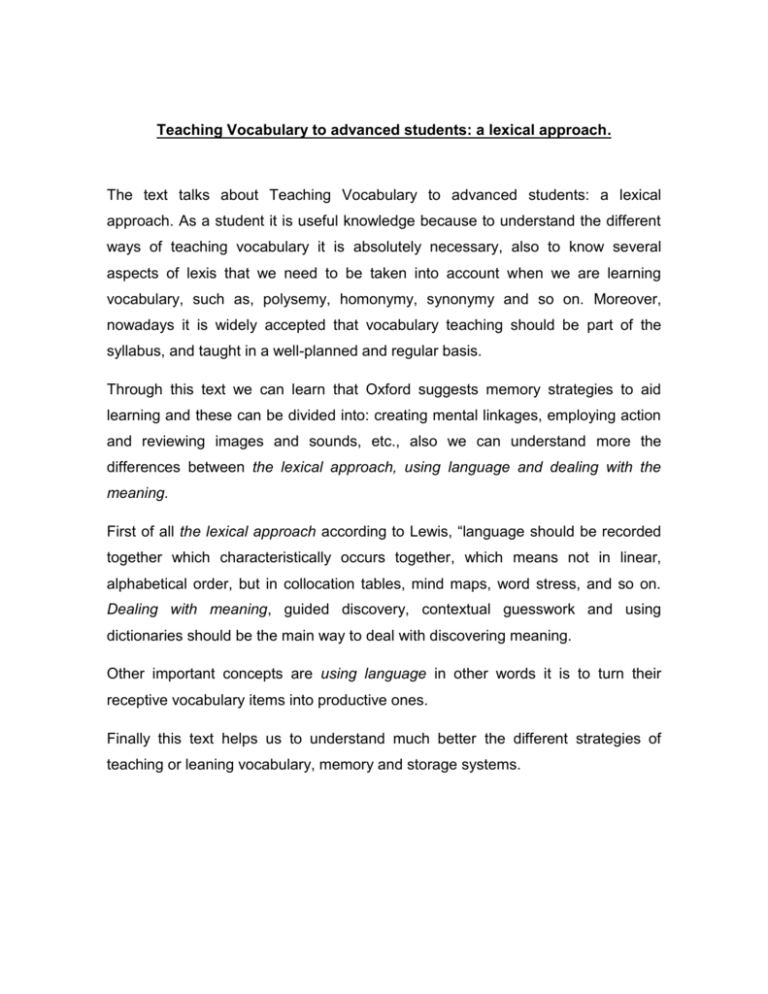
Teaching Vocabulary to advanced students: a lexical approach. The text talks about Teaching Vocabulary to advanced students: a lexical approach. As a student it is useful knowledge because to understand the different ways of teaching vocabulary it is absolutely necessary, also to know several aspects of lexis that we need to be taken into account when we are learning vocabulary, such as, polysemy, homonymy, synonymy and so on. Moreover, nowadays it is widely accepted that vocabulary teaching should be part of the syllabus, and taught in a well-planned and regular basis. Through this text we can learn that Oxford suggests memory strategies to aid learning and these can be divided into: creating mental linkages, employing action and reviewing images and sounds, etc., also we can understand more the differences between the lexical approach, using language and dealing with the meaning. First of all the lexical approach according to Lewis, “language should be recorded together which characteristically occurs together, which means not in linear, alphabetical order, but in collocation tables, mind maps, word stress, and so on. Dealing with meaning, guided discovery, contextual guesswork and using dictionaries should be the main way to deal with discovering meaning. Other important concepts are using language in other words it is to turn their receptive vocabulary items into productive ones. Finally this text helps us to understand much better the different strategies of teaching or leaning vocabulary, memory and storage systems.

